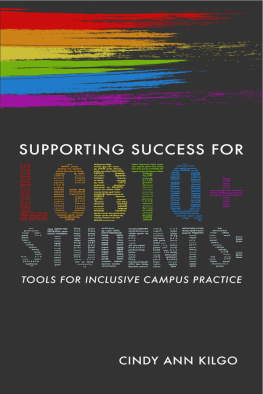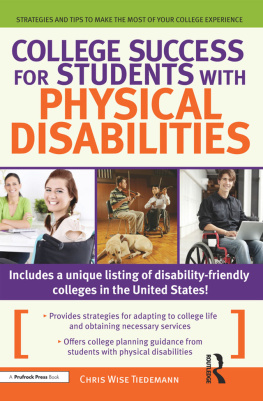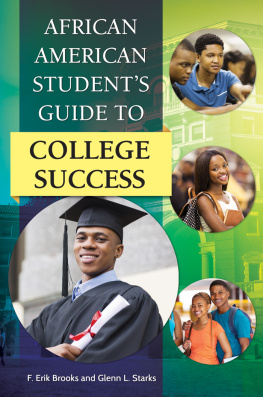

Cite as:
Kilgo, C. A. (2020). Supporting success for LGBTQ+ Students: Tools for inclusive campus practice. University of South Carolina, National Resource Center for The First-Year Experience & Students in Transition.
Copyright 2020 University of South Carolina. All rights reserved. No part of this work may be reproduced or copied in any form, by any means, without written permission of the University of South Carolina.
ISBN: 978-1-942072-33-1
ISBN (ePub): 978-1-942072-34-8
ISBN (eBrary): 978-1-942072-35-5
Published by:
National Resource Center for The First-Year Experience and Students in Transition
University of South Carolina
1728 College Street, Columbia, SC 29208
www.sc.edu/fye
The First-Year Experience is a service mark of the University of South Carolina. A license may be granted upon written request to use the term The First-Year Experience. This license is not transferable without written approval of the University of South Carolina.
Production Staff for the National Resource Center: |
Project Manager: | Tracy L. Skipper, Assistant Director for Publications |
Design and Production: | Krista Larson, Graphic Artist |
External Reviewers: | Peter Arthur, University of British Columbia Lisa Marie Kerr, University of Alabama at Birmingham |

|
Library of Congress Cataloging-in-Publication Data
Names: Kilgo, Cindy A., author.
Title: Supporting success for LGBTQ+ students : tools for inclusive campus practice / Cindy Ann Kilgo.
Description: Columbia : National Resource Center for The First-Year Experience and Students in Transition, University of South Carolina, 2019. | Includes bibliographical references.
Identifiers: LCCN 2019022252 (print) | LCCN 2019002301 (ebook) | ISBN 9781942072331 (pbk.) | ISBN 9781942072348 (Epub) | ISBN 9781942072355 (Ebrary)
Subjects: LCSH: Sexual minority college students--Services for--United States. | Homosexuality and education--United States.
Classification: LCC LC2574.6 .K55 2019 (ebook) | LCC LC2574.6 (print) | DDC 371.826/60973--dc23
LC record available at https://lccn.loc.gov/2019022252

About the Publisher
The National Resource Center for The First-Year Experience and Students in Transition was born out of the success of University of South Carolinas much-honored University 101 course and a series of annual conferences focused on the freshman year experience. The momentum created by the educators attending these early conferences paved the way for the development of the National Resource Center, which was established at the University of South Carolina in 1986. As the National Resource Center broadened its focus to include other significant student transitions in higher education, it underwent several name changes, adopting the National Resource Center for The First-Year Experience and Students in Transition in 1998.
Today, the Center collaborates with its institutional partner, University 101 Programs, in pursuit of its mission to advance and support efforts to improve student learning and transitions into and through higher education. We achieve this mission by providing opportunities for the exchange of practical and scholarly information as well as the discussion of trends and issues in our field through convening conferences and other professional development events such as institutes, workshops, and online learning opportunities; publishing scholarly practice books, research reports, a peer-reviewed journal, electronic newsletters, and guides; generating, supporting, and disseminating research and scholarship; hosting visiting scholars; and maintaining several online channels for resource sharing and communication, including a dynamic website, listservs, and social media outlets.
The National Resource Center serves as the trusted expert, internationally recognized leader, and clearinghouse for scholarship, policy, and best practice for all postsecondary student transitions.
Institutional Home
The National Resource Center is located at the University of South Carolinas (UofSC) flagship campus in Columbia. Chartered in 1801, UofSC Columbias mission is twofold: to establish and maintain excellence in its student population, faculty, academic programs, living and learning environment, technological infrastructure, library resources, research and scholarship, public and private support and endowment; and to enhance the industrial, economic, and cultural potential of the state. The Columbia campus offers 324 degree programs through its 15 degree-granting colleges and schools. In fiscal year 2019, faculty generated $279 million in funding for research, outreach and training programs. South Carolina is one of only 32 public universities receiving both Research and Community Engagement designations from the Carnegie Foundation.

Contents
Chapter 1
Introduction
Chapter 2
The State of Higher Education for LGBTQ+ Students: An Update
Chapter 3
Transitioning Into Collegiate Contexts
Chapter 4
Interacting in the Classroom and Throughout College
Chapter 5
Exiting Collegiate Contexts
Chapter 6
Concluding Thoughts for Creating Change

Tables and Figures
Tables
Figures

Preface
This book aims to serve as a one-stop resource for faculty and staff in higher education settings who are seeking to enhance their campus climate and systems of support for LGBTQ+ student success. Specifically, the volume includes theoretical frameworks and conceptual models that can be used in practice. Using the synthesis and critique of existing literature and analyses of data from the Campus Pride Index, I explore the role of specific functional areas in supporting LGBTQ+ students as they transition into, move through, and exit collegiate contexts. I also include guiding questions for practitioners to consider when evaluating the resources and climate for LGBTQ+ students within various functional areas on campus.
Throughout the text, I provide examples of inclusive excellence at institutions in the United States. These examples are based on Squire and Becks (2016) Developmental Pathways to Trans Inclusion on College Campuses. Within their monograph, the authors described three additive steps toward inclusive practice, with inclusive excellence as the culminating step, which they define as the development of programs, polices, and practices that are universally trans-affirmative. It is my hope that this book equips higher education professionals with tools for creating LGBTQ+ inclusive and affirming environments on their campuses.
Next page








